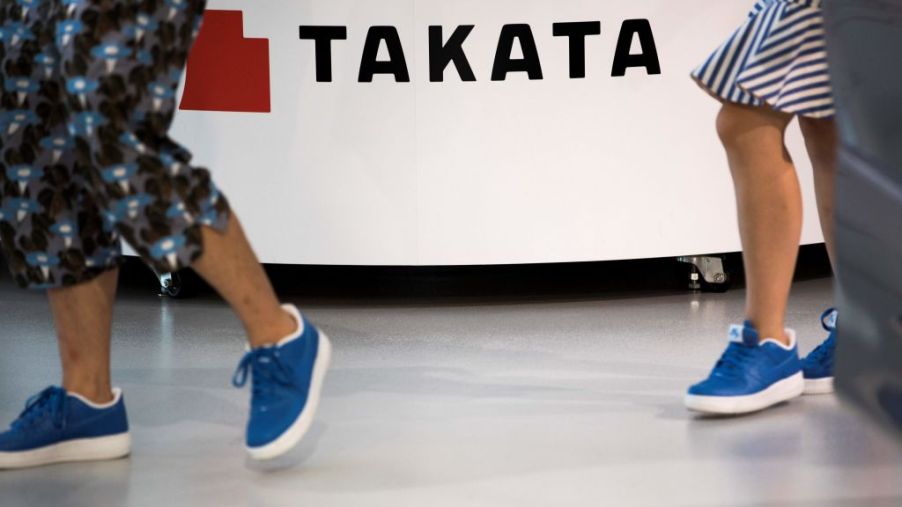
Why Do These Airbags Keep Getting Recalled?
Vehicle recalls are a headache for everyone involved from the manufacturers to the car owners. A particularly headache-inducing recall that is making waves again is the one concerning airbag inflators made by Takata.
The company, which has since gone bankrupt and has been bought out by Joyson Safety Systems, first went under investigation for their faulty inflators back in 2014. Now, nearly six years later, car owners are seeing yet another wave of recall notices about the problematic airbags. What’s taking so long with this recall?
Takata’s airbag recall has been messy

The airbag recall mess started in 2014 when the National Highway Traffic Safety Administration (NHTSA) began investigating Takata’s airbag inflators after it was discovered that the airbags could explode when deployed, causing a significant safety risk. They determined through an investigative process that the chemicals inside the inflators became volatile and exploded on deployment after being exposed to long-term heat and humidity.
The recall notices have gone out each year in January since then, calling on car owners to get their faulty airbags replaced. Since 2019, many of the replacement airbags have been recalled as well. The NHTSA noted that many of the airbags were replaced with Takata airbags again, meaning that the risk of explosion was less because they weren’t exposed to heat for as long as the original parts, but they would still need to be replaced. This year’s notice is expected to be the last, meaning that all faulty parts should be replaced by now.
How serious is this airbag recall?
This airbag recall is one of the most intensive vehicle recalls in history. It has been reported that 24 people have died in the United States due to these defective airbag inflators, and at least 300 people have been injured. Over 41 million vehicles have been affected by the recalls with a total of over 56 million Takata parts being replaced.
With the cause of the explosions being due to exposure to long-term heat and humidity, many regions of the country are affected more seriously than others. Living in an area with frequent high levels of humidity would make you more susceptible to triggering the explosion when deployed in an accident.
Auto manufacturers have been taking this recall very seriously as well as the NHTSA. The problem has been known among manufacturers for even longer than the NHTSA has been involved, with Honda releasing a recall back in 2008 for the airbags. It’s unknown how long Takata themselves have known about the issue.
How to check if your vehicle is involved
If your vehicle was affected by the Takata airbag recall, you should have gotten a notice in the mail at some point alerting you of your faulty part and advising you to bring your vehicle in to the shop and get the airbags replaced. If your dealer advises you make an interim repair, note that you will have to go back again to eventually get that part replaced as well. Interim repairs replace your old airbag with a newly manufactured version of the same airbag. There is less of a chance of explosion since it is newer, but if it’s all a dealer can offer you at the time, you should take that option.
To check if your vehicle is involved in this recall, head over to the NHTSA’s recall website and enter your vehicle’s VIN into the search bar. The website will pull up information on any active recalls that your vehicle may be involved in as well as additional safety information as it concerns to your car.


